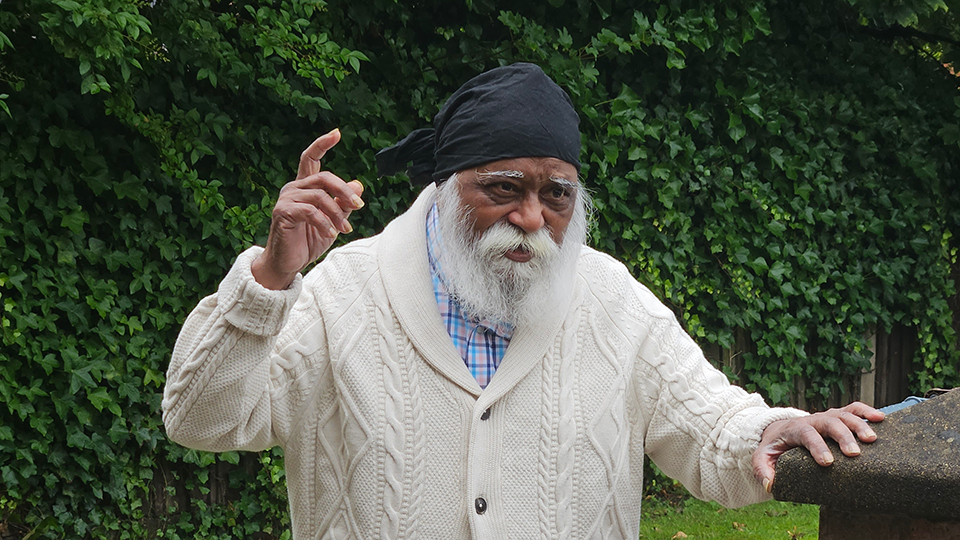
“I can’t see how any family navigates dementia without an Admiral Nurse” – Elliott’s story
When Elliott’s father was diagnosed with young onset Alzheimer’s disease in his fifties, family life was changed forever.
Maintaining good oral health is important for everyone, helping prevent problems like cavities, infections and pain.
However, people with dementia are more prone to tooth decay and gum disease. This may be because they find it difficult to follow an oral hygiene routine, or because they cannot express that they have a toothache, meaning problems go untreated.
Everyone should clean their teeth and mouth twice a day, but a person with dementia may need your support with this. It may be helpful to sit with them while they clean their teeth so you can watch what they’re doing and prompt or help them.
Use a pea-sized amount of toothpaste containing no less than 1450ppm fluoride – this will be marked on the tube.
Make sure you give them clear, short instructions, demonstrating what to do and gently guiding them to clean their mouth and teeth in stages.
Encourage them to spit out the toothpaste rather than rinsing, as the fluoride in the toothpaste will continue to protect their teeth.
It’s important to replace their toothbrush every three months, or sooner if it shows wear.
As dementia progresses, you may need to clean the person’s teeth for them.
These tips may help:
If the person with dementia has dentures, it’s crucial that they are looked after properly.
If they have only recently started wearing dentures, they may need support in getting used to a new oral hygiene routine. They may also need more help as their dementia advances. Try these tips:
People with dementia may struggle to communicate that they are having problems with their teeth, so look out for signs of discomfort like holding their face, grimacing, and appearing sensitive to hot or cold food and drink.
If their gums bleed when cleaning their teeth, this means they have some plaque in their mouth, which is irritating their gums. Continue to brush their teeth, but if the bleeding doesn’t stop after two weeks, make an appointment with a dentist.
You should also ensure they see a dentist if they have loose teeth or ill-fitting dentures, and for routine check-ups – they may need help arranging and keeping these appointments.
Sugar can cause tooth decay, so try to minimise the person’s intake of sugary food and drink, especially between meals. Good alternatives are:
Encourage them to drink water rather than fruit juice or squash that contains sugar. Milk and unsweetened tea and coffee are fine in moderation.
Sometimes, a regular dentist may not be able to meet the treatment needs of the person with dementia, for example if they:
If this is the case, their dentist or another healthcare professional may refer them to a local specialist dental service for people with additional needs. These services have staff who are trained to put people at ease and access to different treatment options to make dental care easier.
Treatment and appointments cost the same as standard dental care.
If you need advice on mouth care or any other aspect of dementia, please call our free Dementia Helpline on 0800 888 6678 (Monday-Friday 9am-9pm, Saturday and Sunday 9am-5pm, every day except 25th December), email helpline@dementiauk.org or you can book a phone or virtual appointment with an Admiral Nurse.
Our free, confidential Dementia Helpline is staffed by our dementia specialist Admiral Nurses who provide information, advice and support with any aspect of dementia.

When Elliott’s father was diagnosed with young onset Alzheimer’s disease in his fifties, family life was changed forever.

Kaur talks about caring for her dad, Mohinder, since his mixed dementia diagnosis, and how community awareness needs to be improved.

Saïna opens up about how her grandfather’s dementia has affected her, and how songwriting has provided a release.